United States
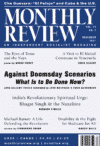
With the rapidly worsening capitalist demolition of the planetary environment and the expansion of ecosocialist movements in response, leading establishment think tanks, like the corporate-supported Breakthrough Institute, dedicated to promoting the ideology of “green capitalism” at any cost, have found themselves in a difficult place. | more…

We should avoid offering a fatalistic worldview. In fact, the environmental movement in general and ecosocialism in particular are all about combating the current trend toward ecological destruction. Climate change is now “code red for humanity.” This is not a doomsday forecast but a call to action. | more…

The sick and disabled need true co-conspirators who hold politicians accountable, who value the sick and disabled as expert strategists speaking to the needs of the community; who understand and amplify our urgency and our anger. We need universal, single-payer health care—comprehensive care for all, regardless of income or health status—now. | more…

There are a thousand ways to be a radical lawyer. Michael Ratner’s magnificent Moving the Bar gives a tantalizing taste of how one person, with his increasing band of colleagues, defended movements for social justice and revolution during his lifetime. | more…
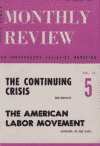
This exchange appeared in the September 1961 issue of Monthly Review. The questions were submitted, in writing, to Comandante Guevara by Leo Huberman during the week of the Bay of Pigs invasion; the answers were received at the end of June. | more…
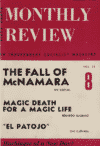
A few days ago, a cable brought the news of the death of some Guatemalan patriots, among them Julio Roberto Cáceres Valle. In this difficult job of a revolutionary, in the midst of class wars which are convulsing the entire continent, death is a frequent accident. But the death of a friend, a comrade during difficult hours and a sharer in dreams of better times, is always painful for the person who receives the news, and Julio Roberto was a great friend. | more…

A new poem by Marge Piercy. | more…
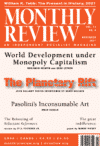
There is an urgent need to transcend the deep chasm in historical materialism, extending back to the 1920s, between the Western Marxist philosophical tradition and the Marxism of the Second and Third Internationals. This division has been closely associated with so-called Western MarxismÕs rejection of the dialectics of nature. | more…
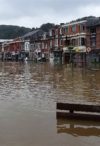
The widespread view on the left that Marx had adopted an extreme productivist view of the human domination of nature—and hence had failed to perceive the natural limits to production and ecological contradictions in general, giving them at most only marginal attention—was contradicted by his theory of the metabolic rift. | more…
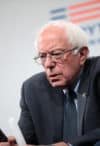
The job of socialists is to engage with public policy from a class perspective, informed by a Marxist understanding of contemporary capitalism—not to reform it, but to abolish it. | more…
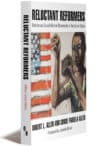
The Reissuing of 'Reluctant Reformers' and Its Contemporary Implications
The reissuing of Reluctant Reformers can inform our attempts to grapple with how the unity of the oppressed can be forged in such a way that the interests of the historically marginalized do not continue to get…well, marginalized. | more…
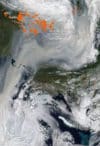
A new poem by Marge Piercy. | more…











